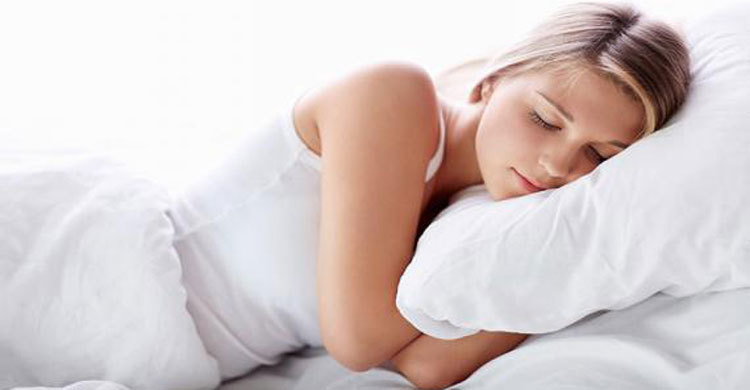Top tips to improve sleep during the menopause

From the benefits of a daytime nap to the right things to do just before bed, here is your must-have guide to helping you relax, unwind and get a good night’s sleep.
Changing hormone levels associated with the menopause can wreak havoc on our sleep which, as well leaving us exhausted, can impact our mood, confidence and even our skin. The good news is there’s plenty we can do to get more shuteye.
Boost your sleep hormones
Dr Sohere Roked, GP and hormone expert at the Omniya MediClinic, says boosting our melatonin levels can improve the depth, quality and pattern of sleep. ‘We produce most melatonin between 10pm and 2am so aim to be in bed before midnight. Even alarm clock light can disrupt production so make sure your bedroom is completely dark.’
Get the right bedtime routine
‘Smartphones, laptops and tablets emit blue rays that can disrupt sleep so switch devices off 30 minutes before bed,’ says Dr Roked. ‘Instead, take a warm bath, read a book or meditate. For evening exercise try yoga, pilates or walking. Intensive cardio will boost energy during the day and help you sleep, but it spikes levels of the stress hormone cortisol so best avoided four hours before bed. Also, cut out caffeine after midday - it can stay in your system for 8 hours.’
Stay in bed
‘While the menopause may trigger insomnia, it tends to be the anxiety and fear associated with sleeplessness that amplifies the problem,” explains Dr Guy Meadows, clinical director of the Sleep School and sleep expert for Bensons for Beds. ‘The traditional advice is to get out of bed and do something boring, like read a book, but when you get up it’s logged by your internal body clock and can become a habit. Your body says: ‘Hey it’s 2am, time to get up!’. There’s a lot of benefit from simply resting at night so I recommend staying in bed and using mindfulness to ease anxiety instead.’
Let it go
‘The more you worry about not sleeping the less you’ll sleep,’ says Dr Meadows. ‘Mindfulness can help loosen the grip of unhelpful thinking patterns, enabling us to observe thoughts without buying into them. Take a few minutes to focus on something that anchors you to the present - the movement of your breath or the touch of the bed on your body. Be open to the fact that your mind will wander then choose to let go of that thought and come back to your breath or the bed. It’s not designed to get you back to sleep, but to let go of unhelpful thoughts. Practice during the day for about 10 minutes. You don’t have to lie in a darkened room - you can do it on the bus, train or when you’re walking.’
Rethink your nightcap
‘Alcohol tends to increase the speed with which we fall asleep’ explains Dr Meadows. ‘It takes an hour to metabolize one unit. So if you have a glass of wine at 7pm it will probably be out of your system by 9.30pm and won’t impact your sleep. If you drink the bottle then you’ll probably feel the consequences.’ Dr Roked adds: ‘Alcohol is also a vasodilator - it opens up the blood vessels, making sleep-disrupting hot flushes worse.’
To nap or not to nap
‘People believe daytime napping will weaken their drive to sleep at night but, like an overtired child, forcing yourself to stay awake can actually lead to more fractious sleep,’ says Dr Meadows. ‘Try a power nap of up to 30 minutes between midday and 3pm, when we have a natural slump. It doesn’t matter if you sleep, just use the time to rest. It can still improve anxiety and energy.’
Coping with hot flushes
‘Mindfulness can be a powerful tool for night sweats,’ says Dr Meadows. “Once you’ve controlled everything you can - wearing light clothes and so on - you’re left with the stuff you can only accept. I teach people to be willing to experience the discomfort in a more neutral, objective way. By describing it without judgment - eg, ‘I feel a hot flush. I feel it most in my back. I’m sweating right now’ - you’re not amplifying it with anxiety.’
The ‘me’ in menopause
The menopause is different for every woman, but Neovadiol can help meet your unique skincare needs during this time. With 14 years’ research behind it, Neovadiol works to reduce the appearance of the signs of ageing that come with hormonal changes, whilst helping your skin feel intensely hydrated. Find your strength with Neovadiol, and put the ‘me’ in menopause.
Courtesy: Telegraph


